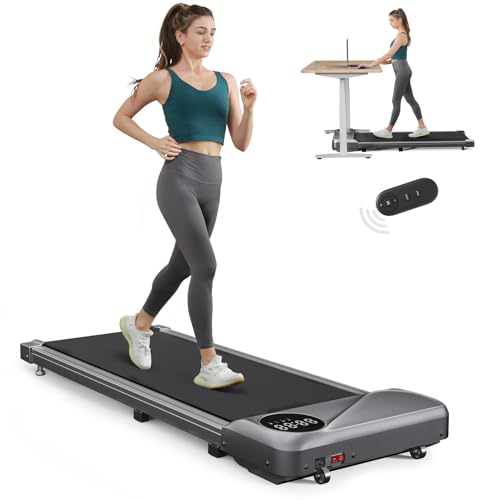10 Ways To Build Your Walking Machine Empire
The Walking Machine: A Comprehensive Guide to Your Fitness Companion
In today's busy world, where time is a high-end, preserving a constant workout routine can be a difficulty. For numerous, a walking machine— frequently known as a treadmill— serves as a perfect fitness companion. This article offers an in-depth take a look at walking machines, including their advantages, types, maintenance ideas, and frequently asked questions.
Why Choose a Walking Machine?
Walking machines use a useful and effective way to incorporate cardiovascular exercise into day-to-day life. Here are a number of key benefits:
- Convenience: Walking machines enable individuals to exercise anytime, regardless of weather condition conditions or time constraints. They are best for busy schedules.
- Adaptability: Users can walk, jog, or run at their own rate and intensity.
- Security: Walking machines present a lower danger of injury compared to outdoor walking or running, specifically for beginners or those recovering from injuries.
- Tracking Progress: Many treadmills included built-in screens that track metrics like speed, range, and calories burned.
Types of Walking Machines
When thinking about a walking machine, it's vital to choose the right type based on private fitness objectives and space restraints. Below are the primary types of walking machines:
Type
Description
Handbook Treadmills
These machines do not have a motor, and users need to stroll or go to rotate the belt.
Electric Treadmills
Powered by an electric motor, allowing users to set the speed and slope effortlessly.
Folding Treadmills
Developed for simple storage, these treadmills can be folded up when not in usage.
Desk Treadmills
Ideal for a dual work and workout environment, these compact machines allow walking while working.
Slope Trainers
These enable users to replicate uphill walking, enhancing workout strength and calorie burn.
Choosing the Right Walking Machine
Picking the right walking machine can considerably affect motivation and effectiveness. Here are some aspects to consider:
Key Features to Look For
- Motor Power: A powerful motor guarantees a smooth and consistent workout. For simply click the up coming webpage , a 1.5 HP motor is generally sufficient; for much heavier use, search for 3.0 HP and above.
- Belt Size: A larger and longer belt offers more space for a comfy stride. Standard sizes vary from 16 inches broad and 50 inches long.
- Incline Options: Adjustable incline settings can replicate walking or running uphill, increasing the strength of the workout.
- Shock Absorption: Good shock absorption minimizes the risk of joint injuries and enhances convenience.
- Console Features: Look for integrated exercises, heart rate monitors, and connectivity features like Bluetooth for a more interesting experience.
Budget Considerations
Walking machines can be found in a vast array of rates, depending upon features and construction quality. Here's a rough spending plan breakdown:
Price Range
Functions
Under ₤ 300
Standard handbook or little electric treadmills with restricted functions.
₤ 300 – ₤ 700
More innovative electric treadmills with slope, medium power motors, and better warranties.
₤ 700 – ₤ 1500
High-quality electric treadmills with bigger integrated display screens, substantial features, and warranties.
₤ 1500 and above
High-end designs offering sophisticated technology, features, and durable building and construction for severe physical fitness enthusiasts.
Upkeep Tips for Your Walking Machine
To make sure durability and ideal performance of a walking machine, think about the following maintenance suggestions:
- Regular Cleaning: Dust and sweat can build up on the machine and the belt. Wipe down the surfaces and clean the belt regularly.
- Lubrication: Depending on the model, lubing the running belt periodically can prevent wear and tear. Check the producer standards for recommended lubrication schedules.
- Examination: Periodically check the machine for loose screws or worn parts. Tighten and replace as required.
- Calibration: Occasionally, inspect the calibration of your machine's metrics to guarantee they provide accurate information.
- Proper Use: Follow the manufacturer's recommendations for weight limits and operational standards.
Frequently Asked Questions About Walking Machines
1. Are walking machines an excellent workout?
Yes, walking machines provide an excellent cardiovascular workout, can assist with weight reduction, and enhance overall health.
2. How typically should I utilize a walking machine?
Go for a minimum of 150 minutes of moderate-intensity aerobic activity each week, which can easily be achieved with routine sessions on a walking machine.
3. Can I slim down on a walking machine?
Yes, including a walking machine regimen into a healthy diet plan can promote weight-loss, especially if combined with periods and incline training.
4. Is it safe for elders to utilize a walking machine?
Yes, walking machines can be safe for senior citizens with low-impact settings and security features like handrails. However, people need to seek advice from with their healthcare company before starting any workout program.
5. What's the distinction between a treadmill and a walking machine?
The term “walking machine” typically refers to a treadmill planned for walking, while “treadmill” can refer to machines used for various strengths, consisting of running.
With their versatility and benefit, walking machines can significantly enhance one's fitness journey. By thoroughly selecting the right type, ensuring correct upkeep, and including various workout strategies, users can optimize their walking machine's advantages. Just like any workout routine, consistency is key to attaining long lasting fitness results.
